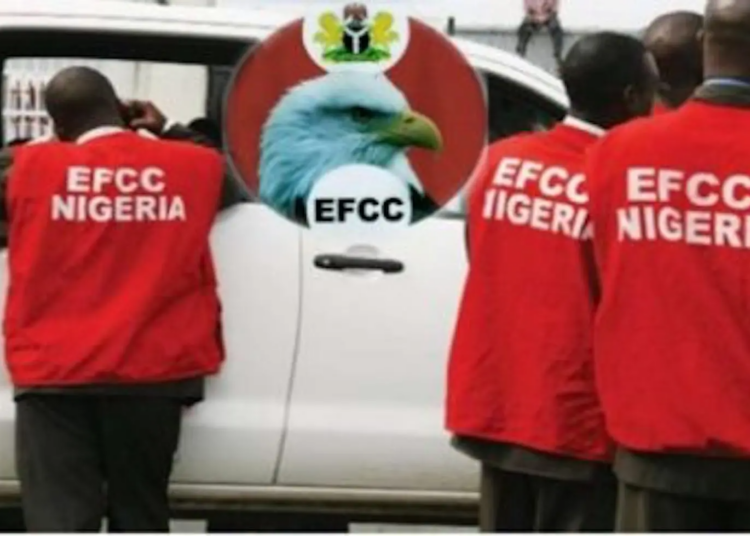
Subject to any last-minute opposition from state governors, direct payments of statutory allocations to Local Government Areas (LGAs) are set to begin in November 2024, according to a report by The PUNCH.
Hakeem Ambali, the National President of the National Union of Local Government Employees (NULGE), shared this update during an exclusive interview with one of our correspondents on Sunday. He emphasized the significance of this development, particularly as the Economic and Financial Crimes Commission (EFCC) has committed to closely monitoring the expenditures of the 774 local government chairmen, ensuring that funds allocated by the Federal Government are properly tracked every month.
This initiative represents a pivotal moment in the realization of local government autonomy, which has been mandated by the Supreme Court, especially in light of the upcoming October 31 deadline for states to hold local government elections.
In May, the Federal Government, through the Attorney General of the Federation and Minister of Justice, Lateef Fagbemi, initiated a lawsuit challenging the authority of governors to receive and withhold federal allocations intended for local governments. The lawsuit aimed to prevent state governors from arbitrarily dissolving democratically elected local councils and appointing caretaker committees instead.
The Attorney General argued that the Constitution mandates a democratically elected system of local government and does not permit alternative governance structures.
On July 11, 2024, the Supreme Court delivered a landmark ruling that reinforced the financial autonomy of all 774 LGAs in Nigeria, determining that governors no longer have the power to control funds allocated for these councils. The seven-member panel of the Supreme Court, presided over by Justice Garba Lawal, concluded that it was illegal and unconstitutional for governors to manage and withhold local government funds.
Moreover, the court directed the Accountant-General of the Federation to make direct payments of local government allocations into their accounts, declaring the failure of the 36 states to remit these funds unconstitutional.
However, the implementation was delayed by a three-month moratorium instituted by the Federal Government, which raised concerns regarding the potential impact on salary payments and the operational viability of local councils.
Additionally, on August 20, the Federal Government established a ten-member inter-ministerial committee to oversee the implementation of the Supreme Court’s ruling on local government autonomy. This committee includes key figures such as the Minister of Finance and Coordinating Minister of the Economy, Wale Edun; the Attorney General of the Federation; the Minister of Budget and Economic Planning, Abubakar Bagudu; the Accountant-General of the Federation, Oluwatoyin Madein; and the Governor of the Central Bank of Nigeria, Olayemi Cardoso.
The committee’s primary objective is to ensure that local governments receive full autonomy, allowing them to operate effectively without interference from state governments. The panel, led by the Secretary to the Government of the Federation, George Akume, completed its assignments and submitted its findings on October 13.
Recent findings from The PUNCH indicated that at least 164 local governments across eight states had not conducted elections and risked having their federal allocations withheld by the Federal Government in accordance with the court ruling.
However, in a recent update, NULGE Chairman Hakeem Ambali announced that these issues have been addressed, and payments are expected to commence during the November distribution by the Federal Accounts Allocation Committee. Ambali remarked, “We want to ensure that everything is properly organized to avoid any potential issues. We know that governors are trying to assert their influence; for example, look at what’s happening in Abia State.”
He added, “We are determined to avoid any loopholes. We are confident that by November, the entire process will be in full effect.” He also mentioned that the Ministry of Budget and National Planning held a stakeholder meeting aimed at facilitating the smooth implementation of the new policy.
“Last week, we had technical sessions with the Minister of Budget and National Planning from Monday to Wednesday, and we are confident that the full implementation will take place by November,” he stated.
The PUNCH reported that NULGE and other unions have formally requested that allocations not be disbursed to states that have failed to implement local government autonomy.
Meanwhile, EFCC Chairman Ola Olukoyede has indicated that the commission will monitor the budget performance of all local governments throughout the nation. In an interview featured in the commission’s magazine, he expressed concern over the excessive control that state governments have over local government resources.
Olukoyede noted that the EFCC has expanded its presence nationwide and pledged that any local government official found to be misappropriating funds will be prosecuted. He stated, “The action initiated by the Attorney General and Minister of Justice, Prince Lateef Fagbemi (SAN), was wise. Local government operations in the country have been severely hindered by the excessive influence of state governments.”
He pointed out that the charges recently filed against former Taraba State Governor Darius Ishaku relate to the alleged embezzlement of billions meant for local government funds. “Direct access to their funds could enhance developmental activities at the local government level and help alleviate rural poverty,” he added.
The EFCC Chairman confirmed the commission’s commitment to ensuring accountability in the utilization of local government funds. He explained that the establishment of additional zonal directorates was aimed at enhancing the EFCC’s coverage and effectiveness across the country.
“We will collaborate with stakeholders to track the budget performance of councils, ensuring that allocated funds are utilized for their intended purposes and that anyone violating the law will face justice,” Olukoyede affirmed.
Additionally, NULGE President for Edo State, Daudu Clifford, stated that the direct payment process to local government accounts is indeed set to begin in November. He pointed out that state governors had requested a three-month period to prepare for the implementation, which will conclude at the end of October.
“They haven’t actually begun the implementation yet. The governors are delaying the process since they requested three months before starting, which will end this month. We’ll wait until the end of November to see if the allocations are paid directly into the local government accounts,” he noted.
Clifford also stressed that the Supreme Court ruling is clear, warning that if a local government chairman were to hand over allocated funds to the state government, they would be held accountable.
Similarly, Aminu Kaita, the National President of the Association of Local Governments in Nigeria, confirmed that the direct disbursement of allocations to local councils from the Federation Account is ongoing. He stated, “We are working on it. The deadline is October, and it has not passed yet, so we are making progress.”
An official from Sokoto State’s ALGON, who wished to remain anonymous, expressed uncertainty about whether the payments were being made directly to the local governments or to the state government’s joint allocation account. They indicated that the association’s leadership would clarify the situation to the public at the appropriate time.
It was also reported that local governments in Zamfara State have yet to receive their monthly allocations directly from the federation account, while officials from NULGE in Kano, Bayelsa, and Akwa Ibom states declined to comment on the matter.




